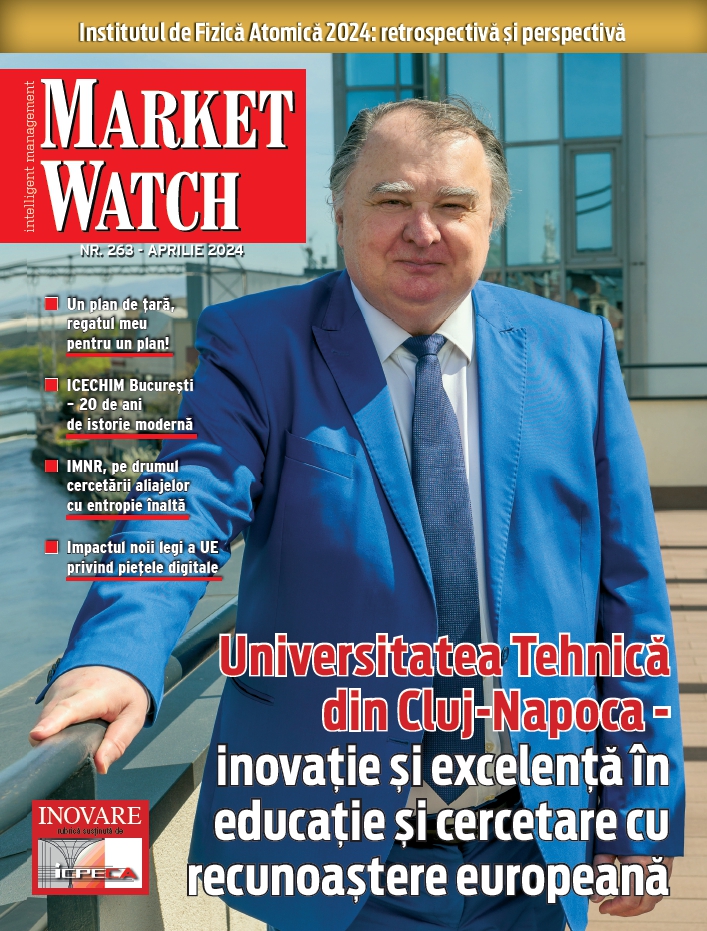Ted Lattimore pleaca de la Connex

 Connex va avea un nou Chief Executive Officer, Liliana Solomon, incepand cu 1 noiembrie 2005, a anuntat astazi Paul Donovan, CEO Regional OVS (Other Vodafone Subsidiaries). De asemenea, Paul Donovan a anuntat ca Ted Lattimore va pleca din pozitia de Presedinte si Chief Operating Officer al Connex in decembrie 2005, dupa aproape 6 ani de cand se afla la conducerea companiei.
Connex va avea un nou Chief Executive Officer, Liliana Solomon, incepand cu 1 noiembrie 2005, a anuntat astazi Paul Donovan, CEO Regional OVS (Other Vodafone Subsidiaries). De asemenea, Paul Donovan a anuntat ca Ted Lattimore va pleca din pozitia de Presedinte si Chief Operating Officer al Connex in decembrie 2005, dupa aproape 6 ani de cand se afla la conducerea companiei.
“Dinamismul cu care Ted a condus Connex, de la inceputul anului 2000, a fost un catalizator esential al cresterii impresionante a numarului de clienti si al rezultatelor financiare excelente inregistrate de Connex. Sub conducerea lui Ted, Connex a crescut de la 1 milion la peste 5 milioane de clienti, in numai 5 ani si jumatate. In acelasi timp, Connex a fost recunoscuta, an dupa an, ca una dintre cele mai importante si admirate companii, in Romania si dincolo de granitele tarii”, a spus Paul Donovan.
“Connex a fost intotdeauna legat de Romania si de viitorul Romaniei. Sunt mandru de succesul inregistrat de Connex si de respectul pe care ni-l arata milioane de oameni. Pentru Connex si pentru clientii sai, viitorul inseamna acum alaturarea la grupul Vodafone, cea mai mare comunitate de comunicatii mobile din lume. Sunt onorat sa predau conducerea companiei si doresc ca succesul Vodafone in Romania sa fie la fel de mare precum cel al Vodafone in lume, in viitorul apropiat si pentru totdeauna”, a spus Ted Lattimore.
Ted Lattimore se va intoarce in Canada, tara sa natala, unde intentioneaza sa se implice in pregatirile pentru Jocurile Olimpice de Iarna din Vancouver, 2010.
Liliana Solomon a fost numita Chief Executive Officer Connex, incepand cu 1 noiembrie 2005.
“Liliana va colabora cu Ted si cu Vodafone Group pentru a se familiariza pe deplin cu strategiile Vodafone si cu prioritatile de afaceri ale Connex”, a adaugat Paul Donovan.
Romanca Liliana Solomon vine in Connex de la compania Cable & Wireless, unde a detinut simultan functiile de Chief Financial Controller pentru divizia din Marea Britanie si de Chief Financial Officer (CFO) pentru operatiunile internationale ale companiei. Anterior, Liliana Solomon a fost CFO al operatorului de comunicatii mobile T-Mobile, in Marea Britanie, fiind responsabila de operatiunile GSM curente ale companiei.
De-a lungul carierei ei, Liliana a castigat o experienta considerabila, in special in comunicatiile mobile, si in industria de telecomunicatii, in general. In perioada in care a lucrat pentru T-Mobile, Liliana a fost relocata in Germania; anterior ea a detinut pozitia de Vice Presedinte Executiv, Controlling & Business Management, la Deutsche Telekom. Liliana a obtinut MBA-ul la INSEAD, Franta.
Connex este prima retea video mobila din Romania, cu un numar de 5.250.621 de clienti, la data de 30 iunie 2005. Connex este marca inregistrata a MobiFon S.A., o divizie a Vodafone Group Plc. Vodafone este cea mai mare comunitate de comunicatii mobile din lume, cu divizii in 27 de tari si Retele Partenere in alte 14 tari. Cu o gama completa de servicii de telecomunicatii mobile de voce si de date, Vodafone ofera in prezent servicii catre 165 milioane de clienti din intreaga lume.

Parerea ta conteaza: 



































.jpg) Academia Română a fost creată în 1866 pentru a cristaliza cele mai înalte valori intelectuale din provinciile românești într-o societate erudită menită să consolideze identitatea națională pe baza a patru componente esențiale: limbă și literatură, istorie, etnografie și cultură. La...
Academia Română a fost creată în 1866 pentru a cristaliza cele mai înalte valori intelectuale din provinciile românești într-o societate erudită menită să consolideze identitatea națională pe baza a patru componente esențiale: limbă și literatură, istorie, etnografie și cultură. La...








 Info World punctează în programele de finanţare ale Comisiei Europene
Info World punctează în programele de finanţare ale Comisiei Europene